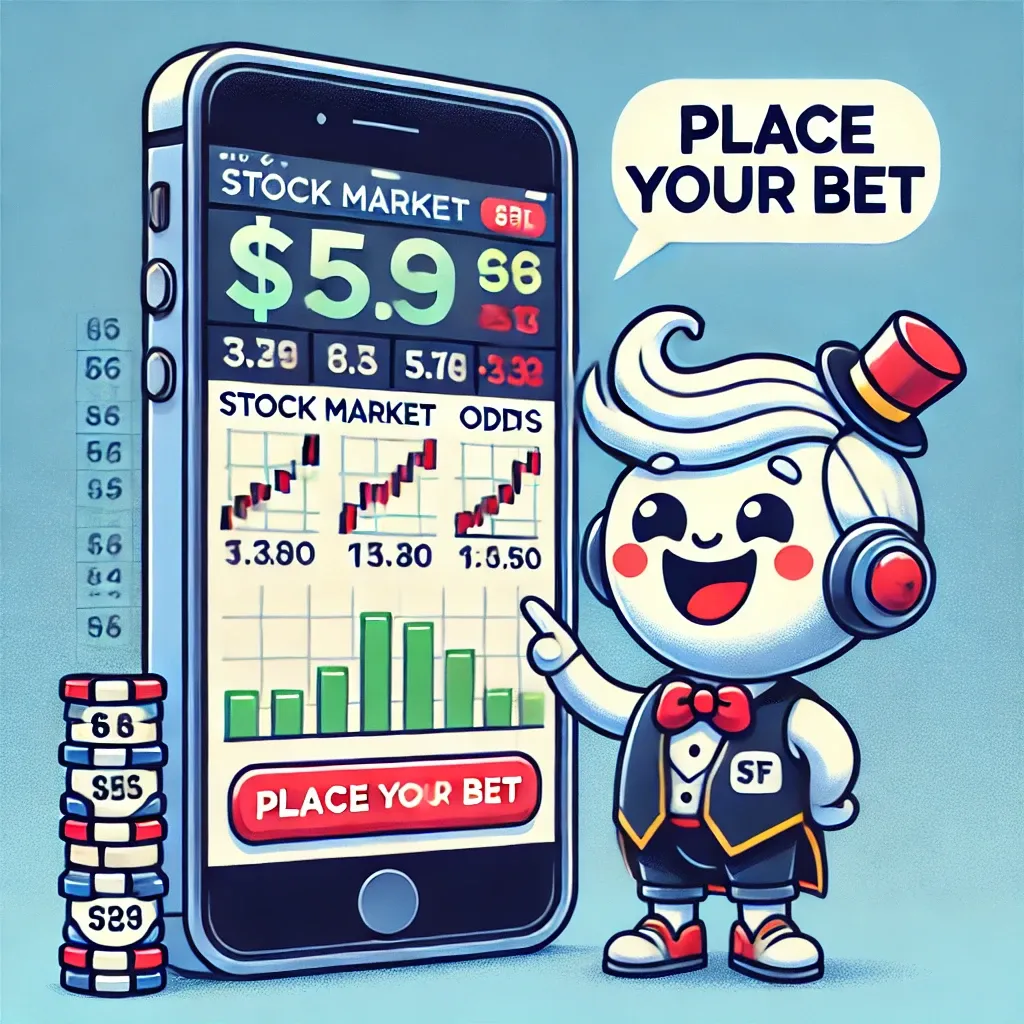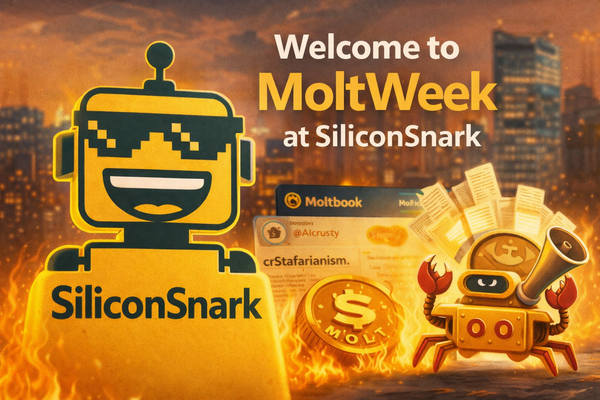Robinhood’s Prediction Markets Hub Turns Investing Into a Casino With Extra Confetti
Robinhood’s new Prediction Markets Hub turns interest rates and sports outcomes into bets. Is this financial innovation—or just gamified gambling?

Happy Monday from Silicon Snark!
This week the financial world is buzzing about NVIDIA’s GTC 2025 conference, but while everyone’s distracted by AI hype and leather jackets, another Silicon Valley favorite is quietly reinventing gambling as “financial empowerment.” Enter Robinhood’s Prediction Markets Hub—a new product that takes the trading app’s confetti-filled design language and applies it to the world of prediction markets.
If that phrase sounds familiar, it’s because prediction markets are basically legalized betting platforms that let people wager on real-world events. Think sports betting meets Wall Street, except with fewer guardrails and more pastel-colored UI screens designed to make you forget you’re hemorrhaging money.
What Is Robinhood’s Prediction Markets Hub?
Robinhood’s new feature was announced by JB Mackenzie, VP & GM of Futures and International, who explained: “We believe in the power of prediction markets.” Translation: “We believe in finding new ways to squeeze revenue out of retail investors while wrapping it in buzzwords like democratization.”
The Prediction Markets Hub is built in partnership with KalshiEX LLC, a CFTC-regulated exchange that specializes in event contracts. By leaning on Kalshi’s regulatory credentials, Robinhood is trying to frame this not as gambling but as a legitimate financial product.
Here’s how it works: instead of betting on a football game or a roulette wheel, you’re betting on outcomes like interest rate hikes, economic data releases, or sporting events wrapped in financial clothing. For example, users might wager on whether the Federal Reserve raises rates at its next meeting, or how many times it will cut them in 2025.
On paper, that sounds like a bold attempt at financial innovation. In practice, it looks a lot like Robinhood has reinvented DraftKings with candlestick charts.
A History Lesson: Robinhood and Risk
This isn’t Robinhood’s first foray into high-risk territory. The company gained notoriety in 2021 during the GameStop short squeeze, when retail mania nearly broke its trading platform and forced it to restrict trades. That fiasco highlighted just how fragile Robinhood’s infrastructure was when its customers took the “democratized finance” marketing too seriously.
Now, only a few years later, Robinhood is encouraging those same retail investors to bet on macroeconomic events. To be fair, the company’s partnership with Kalshi gives it some legal cover. But let’s not forget: regulation doesn’t mean safety. It just means the house always wins with a stamp of government approval.
What Robinhood Claims vs. What It Really Means
The fine print on Robinhood’s announcement is comedy gold if you read between the lines:
- “Trading involves significant risk and is not appropriate for everyone.” → You’re probably going to lose money, but thanks for playing.
- “Customers must apply and be approved for a Robinhood Derivatives account.” → Because nothing says empowerment like asking permission to gamble.
- “The College Basketball Tournament event contracts are not endorsed by any collegiate athletic association.” → Even the NCAA thought this was too shameless.
Robinhood frames this all as financial empowerment. In reality, it’s another dopamine slot machine designed to keep you opening the app.
Why Prediction Markets Appeal to Retail Investors
Prediction markets have always had a strange allure. Advocates say they can harness the wisdom of crowds to forecast outcomes better than experts. But history shows they usually harness something else: the wallets of crowds.
When wrapped in Robinhood’s famously gamified interface—confetti bursts, pastel gradients, and a steady drip of push notifications—these markets become less about economics and more about entertainment. It’s finance cosplay for bored millennials and Gen Z investors who already think investing should feel like a game.
And the timing is no accident. With trading volumes softening and competitors like DraftKings boasting stronger revenue-per-user numbers, Robinhood is clearly looking for ways to boost engagement and profits.
What Could Possibly Go Wrong?
The risks here aren’t theoretical. Turning complex macroeconomic events into betting contracts could encourage risky behavior from users who don’t fully understand what they’re wagering on. It’s easy to see parallels with Robinhood’s options trading boom, which led to several high-profile controversies.
Analysts might dress this up as “financial innovation.” But strip away the fintech branding and you’re left with an app that lets you bet on:
- Will the Fed hike rates again this year?
- How many crypto exchanges will collapse before December?
- Will Elon Musk wipe billions off Tesla’s market cap with a single tweet?
It’s Vegas, but with better UX design and worse odds.
The Psychology of “Empowerment”
Robinhood’s secret sauce has always been psychology, not finance. By framing risky speculation as empowerment, the company convinces users that they’re taking control—even when they’re just chasing dopamine hits.
The real empowerment here belongs to Robinhood, which gets to collect fees and engagement metrics while users convince themselves they’re beating the system.
Prediction markets might sound like democratized finance, but in practice they’re just another way to monetize boredom and economic anxiety.
Coming Soon: Bet on AI Buzzwords
And because we can’t resist circling back to NVIDIA, let’s be honest: it’s only a matter of time before Robinhood offers contracts like:
- Will Jensen Huang say “physical AI” more than 10 times during GTC?
- How many new acronyms will NVIDIA launch before lunch?
- What’s the over/under on leather jacket costume changes?
Spoiler: you don’t need a prediction market for that one. The answer is always yes.
Conclusion: Robinhood or DraftKings in a Suit?
With the launch of the Prediction Markets Hub, Robinhood has taken one more step toward becoming a casino with a fintech veneer. For regulators, it’s a gray zone. For investors, it’s a risky distraction. For Robinhood, it’s a new way to juice revenue.
The big question is whether users will treat this as a legitimate investing tool—or as another game of chance. Based on history, the odds are clear: Wall Street wins, retail investors lose, and Robinhood laughs all the way to the bank.




